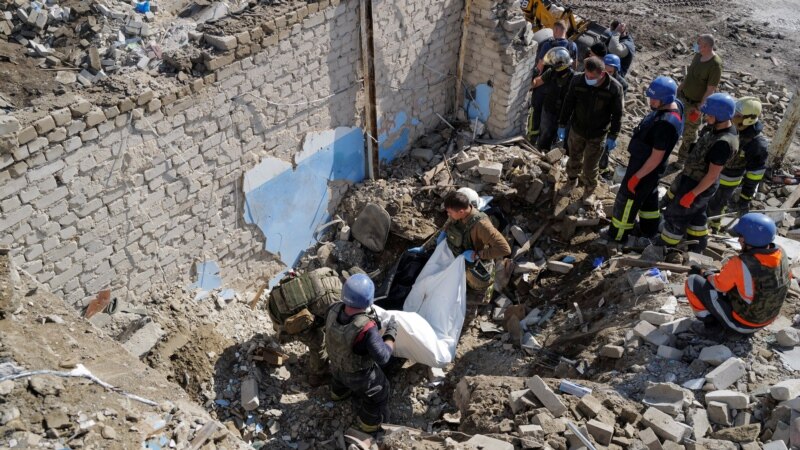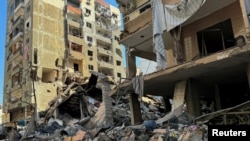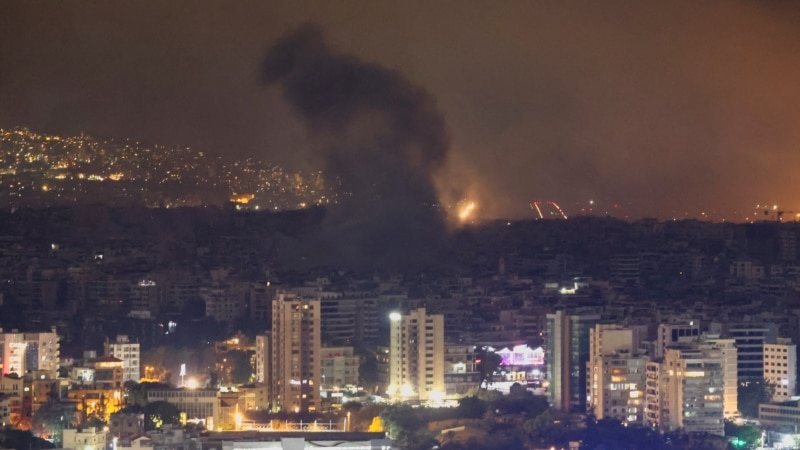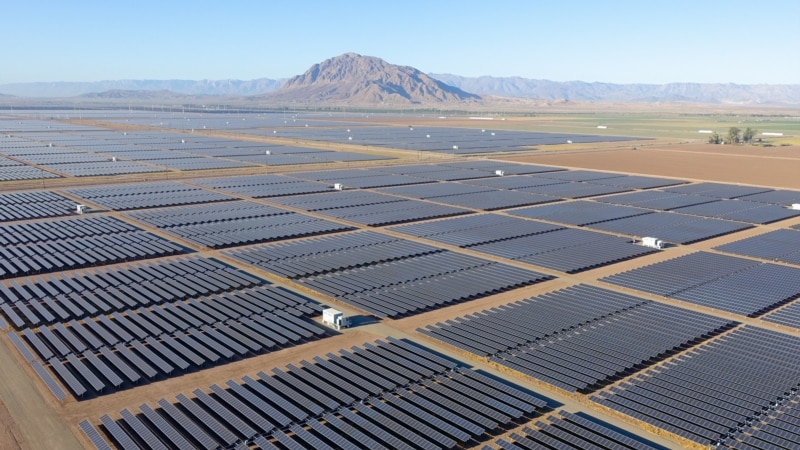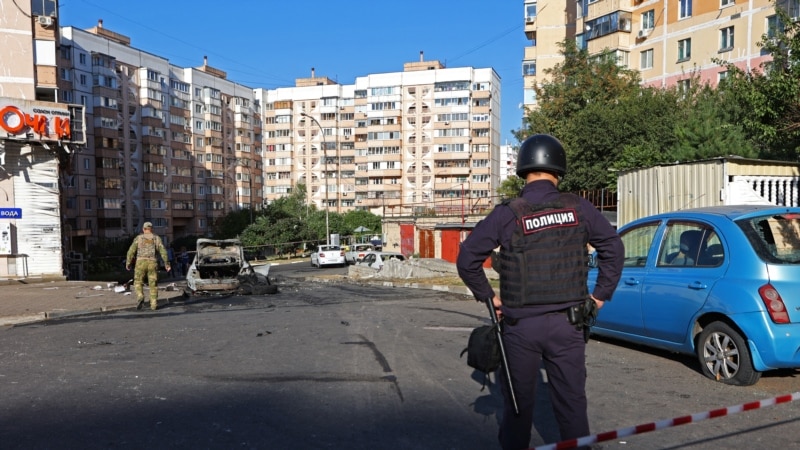For full coverage of the crisis in Ukraine, visit Flashpoint Ukraine.
The latest developments in Russia’s war on Ukraine. All times EDT
11:15 a.m.:
11:00 a.m.: Kremlin spokesman Dmitry Peskov says the Nord Stream pipeline accident would have been impossible without the involvement of a state actor, The Associated Press reported.
Peskov told reporters in a conference call Thursday that it “looks like a terror attack, probably conducted on a state level.” He said “it would be hard to imagine” from the extent of damage to the pipeline that it didn’t happen without state involvement and urged a quick investigation.
Swedish coast guard officials reported Thursday a fourth leak to the Nord Stream pipelines conveying natural gas from Russia to Germany off southern Sweden.
Peskov dismissed media reports about Russian warships spotted in the area as “stupid and biased,” adding that “many more aircraft and vessels belonging to NATO countries have been spotted in the area.” He wouldn’t say if it could be possible to repair the pipeline.
10:50 a.m.:
10:35 a.m.: Hungary cannot support the European Union’s planned eighth round of sanctions against Russia over its invasion of Ukraine if those contain energy sanctions, Prime Minister Viktor Orban’s chief of staff said on Thursday, according to Reuters.
The EU executive proposed on Wednesday fresh sanctions against Russia, including tighter trade restrictions, more individual black listings and an oil price cap for third countries.
The proposed sanctions fall short of harder-hitting measures, including a ban on importing Russian diamonds, sought by Russia hawks Poland and the three Baltic countries.
But EU states need unanimity to impose sanctions and Orban has been a vocal critic, saying on Monday that the EU sanctions have “backfired,” driving up energy prices and dealing a blow to European economies.
10:20 a.m.:
10:05 a.m.: Russians are taking over what used to be Western business properties and interests, Foreign Policy magazine reported Thursday, noting that several dozen Western companies left the country following Russia’s invasion of Ukraine.
“A new generation of business owners with no experience are snapping up Western companies’ assets at fire-sale prices,” Foreign Policy reported. “Indeed, Western companies are unwittingly helping to create a new generation of Russian oligarchs.”
“It’s a lot like the early 1990s, when then-unknown Russian entrepreneurs snapped up valuable state-owned companies at fire-sale prices. Russia’s war against Ukraine is creating a new generation of prospective oligarchs,” it said.
However, with tens of thousands of Russian men either participating in the war in Ukraine, being mobilized, or fleeing the country to avoid the mobilization, Foreign Policy pointed out that a labor shortage may be looming for some of these newly acquired companies.
“Now, if Russia isn’t even able to operate its newly Russified versions of the Western companies that have departed and people face tangible inconveniences, (Russian President Vladimir Putin) risks real unrest,” Foreign Policy stated.
9:50 a.m.: Mobilization has been a bitter pill for many Russians to swallow, Radio Free Europe/Radio Liberty reported, noting that Russia is offering debt breaks and other benefits to entice draftees.
Putin’s September 21 decision to mobilize at least 300,000 Russian men — and possibly up to a million based on some media reports — has sparked protests around the country and driven, by some accounts, hundreds of thousands of citizens to flee to neighboring countries to avoid the draft.
The sharp backlash is already forcing the Kremlin to sweeten financial incentives to stem the protests and draft dodging that threaten to undermine its invasion strategy in Ukraine.
Russian lawmakers scrambled this week to pass amendments widening benefits for those serving in Ukraine as well as their immediate family members, including debt repayment freezes and outright debt forgiveness.
Russian military officials have already promised to pay draftees a monthly salary ranging from 135,000 to 200,000 rubles ($2,290 to $3,400) depending on their rank, an amount that is two to three times the national average, according to the Moscow-based Alfa Bank.
9:25 a.m.:
9:15 a.m.: The European Commission said on Thursday it would file a legal challenge against Malta for its so-called golden passport program that allows wealthy foreigners to buy citizenship in exchange for an investment of around 1 million euros ($970,000), Reuters reported.
Holding a Maltese passport allows them to live and work in any EU country.
In recent months, Malta suspended the program for Russian and Belarusian nationals following the start of the war in Ukraine, but it continues to operate the scheme for all other nationalities and “has not expressed any intention to end it”, the Commission said in a statement.
9:05 a.m.: Kremlin spokesman Dmitry Peskov says the Nord Stream pipeline accident would have been impossible without the involvement of a state actor, The Associated Press reported.
Peskov told reporters in a conference call Thursday that it “looks like a terror attack, probably conducted on a state level.”
He said “it would be hard to imagine” from the extent of damage to the pipeline that it didn’t happen without state involvement and urged a quick investigation.
Swedish coast guard officials reported Thursday a fourth leak to the Nord Stream pipelines conveying natural gas from Russia to Germany off southern Sweden.
Peskov dismissed media reports about Russian warships spotted in the area as “stupid and biased,” adding that “many more aircraft and vessels belonging to NATO countries have been spotted in the area.” He wouldn’t say if it could be possible to repair the pipeline.
8:45 a.m.: President Vladimir Putin signed a decree on Thursday authorizing the Russian government to ban some Western trucks from transiting across Russian territory, Reuters reported.
The decree allows for a ban on trucks carrying freight that are registered in countries that have applied similar restrictions against Russia.
Russia complained in April that the European Union had closed its borders to some freight vehicles registered in Russia and Belarus due to sanctions over the conflict in Ukraine.
8:30 a.m.: Moscow is trying to draft fleeing Russian men at the borders, The Associated Press reported.
Long lines of Russians trying to escape being called up to fight in Ukraine continued to clog highways out of the country, and Moscow reportedly set up draft offices at borders to intercept some of them.
North Ossetia, a Russian region that borders Georgia, has restricted many passenger cars from entering its territory, and set up a draft office at the Verkhy Lars border crossing, Russian news agencies said. Some media outlets released photos at the crossing showing a black van with “military enlistment office” written on it.
Another such draft checkpoint was set up in Russia along the Finnish border, according to the independent Russian news outlet Meduza.
Tens of thousands of Russian men have fled in the week since President Vladimir Putin announced a mobilization to bolster struggling Russian forces in Ukraine. Although Putin said the callup was “partial,” aimed at calling up about 300,000 men with past military service, many Russians fear it will be much broader and more arbitrary than that. There are numerous reports of men with no military training and of all ages receiving draft notices.
8:15 a.m.:
8:05 a.m.: German Chancellor Olaf Scholz tweeted Thursday that he assured Ukrainian President Volodymyr Zelenskyy that Germany will never recognize the “so-called results.”
“The sham referendums carried out by Putin in the illegally occupied areas of Ukraine are worthless,” Scholz said.
7:50 a.m.: Finland will close its border to Russian tourists from midnight local time (2100 GMT), which is expected to lead to a significant drop in cross-border traffic, Reuters reported Thursday, citing the government.
Entry for family visits, as well as for work and studies, will still be permitted, Foreign Minister Pekka Haavisto told a news conference.
7:40 a.m.:
7:35 a.m.: President Vladimir Putin will on Friday begin formally annexing 15% of Ukrainian territory, presiding at a Kremlin signing ceremony to add four Ukrainian regions to Russia, Reuters reported.
Kremlin spokesman Dmitry Peskov said the ceremony would take place at 1500 Moscow time (1200 GMT) on Friday “on agreements on the accession of new territories into the Russian Federation.”
Agreements will be signed “with all four territories that held referendums and made corresponding requests to the Russian side,” Peskov said.
Ukraine and the West have rejected the hastily arranged votes, held seven months after Russia’s invasion, as illegitimate shams.
Putin’s decision to incorporate the regions into Russia means Moscow will annex vast areas across eastern and southern Ukraine, representing around 15% of Ukraine’s total territory.
Following the signing ceremonies in the Kremlin, Putin will give a major speech and will meet with Moscow-appointed administrators of the Ukrainian regions, the Kremlin said.
7:15 a.m.: The Kremlin said on Thursday a phone call between President Vladimir Putin and his Turkish counterpart Tayyip Erdogan was being prepared.
It gave no further details. Erdogan has been in active diplomatic contact for months with both Russia and Ukraine, including brokering a deal to allow the resumption of Ukrainian grain exports via the Black Sea.
6:50 a.m.: Turkey’s state lender Ziraat Bank has suspended use of Russia’s Mir payment system, Chief Executive Alpaslan Cakar told Reuters on Thursday.
The suspension comes as the United States cracks down on those accused of helping Moscow skirt sanctions and as Western nations grow concerned over increased economic ties between NATO-member Turkey and Russia.
Turkish President Tayyip Erdogan was quoted as saying last week that Turkey would have to take steps on finding an alternative to the Mir system, “whether we like it or not” due to sanctions.
Two private banks, Isbank and Denizbank, suspended their use of the Mir system last week after Washington expanded its sanctions on Russia, including targeting the entity that runs the payment system.
But Reuters had reported, based on sources, that state banks could continue using the Mir system, while offering more transparency and assurances to the West that it was not being used to circumvent sanctions.
Turkey’s two other state banks, Halkbank and Vakifbank, have not commented on the issue.
NATO member Ankara opposes Western sanctions on Russia and has close ties with both Moscow and Kyiv, its Black Sea neighbors. It has also condemned Russia’s invasion and sent armed drones to Ukraine as part of its diplomatic balancing act.
Uzbekistan’s UZCARD system said on Friday it had suspended the processing of payments via Mir cards.
6:30 a.m.: The European Parliament’s Special Committee on Foreign Interference and Disinformation will hold a public hearing today on “Russian disinformation and propaganda regarding Ukraine in the light of its war of aggression and its impact on democratic processes in the EU.”
The guest speakers include Dmitry Muratov, the 2021 Nobel Peace Prize laureate and editor-in-chief of Novaya Gazeta, and Olga Rudenko, editor-in-chief of Kyiv Independent.
6:15 a.m.: NATO Secretary General Jens Stoltenberg said on Thursday that a deliberate attack against allies’ infrastructure would be met with a determined response, following what it called acts of “sabotage” on the Nord Stream pipelines.
“All currently available information indicates that this is the result of deliberate, reckless, and irresponsible acts of sabotage,” NATO said in a statement.
“We, as Allies, have committed to prepare for, deter and defend against the coercive use of energy and other hybrid tactics by state and non-state actors. Any deliberate attack against Allies’ critical infrastructure would be met with a united and determined response,” it said.
6 a.m.: The head of the upper house of the Russian parliament said it could consider the incorporation of the four regions on Tuesday, three days before Russian President Putin’s 70th birthday, Reuters reported.
5:55 a.m.: The New York Times posted on its website excerpts of phone conversations between Russian soldiers and their loved ones. Ukrainian law enforcement intercepted the conversations, which reveal many of the troops’ frustrations with the war and Russian President Vladimir Putin himself.
In one, a man named Sergue questions the purpose of the conflict.
“Mom, we haven’t seen a single fascist here,” he said. “This war is based on a false pretense. No one needed it. We got here and people were living normal lives. Very well, like in Russia. And now they have to live in basements. The old lady who lived near us had to live in the cellar. Can you imagine?”
5:30 a.m.: The U.S. candidate Doreen Bogdan-Martin on Thursday decisively beat a Russian candidate to be the next Secretary-General of the International Telecommunication Union in an election seen as a test of how many countries are still siding with Russia, Reuters reported.
Bogdan-Martin won the election to be the next head the International Telecommunication Union, or ITU, with 139 votes out of 172 cast, defeating Russia’s Rashid Ismailov, the U.N. agency said in a statement.
The election that took place in Bucharest, Romania, is seen as a key indicator of Western efforts to isolate Russia diplomatically at the U.N. amid signs that international resolve is fading more than seven months after Russia’s invasion of Ukraine.
“I’ve worked for this moment for more than three decades,” Bogdan-Martin, an ITU veteran, said in a victory speech where she pledged unity and to work to improve digital connectivity.
She is the first woman to head the Geneva-based agency that was set up in 1865 to overcome interruptions in the telegraph system at borders. Its mission remains similar to this day: ensuring international communications for people and businesses. The ITU also plays a key role in setting standards for new technology, such as artificial intelligence.
4:15 a.m.: Sweden found a fourth leak in a major undersea pipeline that carries Russian natural gas to the European Union, according to BBC News.
The fourth leak is in addition to the three Denmark and Sweden already reported in the Nord Stream 1 and 2 pipelines. The EU said the leaks had been caused by sabotage.
Russia called suggestions it had attacked its own pipelines as “predictable and stupid.”
3:40 a.m.: An agreement on the next sanctions package against Russia is expected before next week’s EU summit, or at least major parts of the package, an EU official told Reuters.
The official said they expected the summit to focus on the referendums in Ukraine, possible annexations of areas by Russia, Russia’s nuclear threats and the disruption to the Nord Stream pipelines.
EU leaders are also expected to discuss ideas for energy price caps at the summit, which the EU official expects to be tense “as we are in difficult times.”
3:05 a.m.: Russia’s Gazprom said it will ship 42.5 million cubic meters of gas to Europe via Ukraine on Thursday, Reuters reported.
2:10 a.m. The United Kingdom’s Ministry of Defense releases its latest intelligence update.
1:18 a.m.: Ukraine continues to ship grain across the Danube to the Romanian Black Sea port of Constanta even after some of its own ports reopened, and the new routes are likely to remain, the deputy chief of freight logistics group TTS said on Wednesday, according to Reuters.
Ukraine’s grain exports slumped after Russia invaded the country on Feb. 24 and blockaded its Black Sea ports, driving up global food prices and prompting fears of shortages in Africa and the Middle East.
The country, one of the world’s leading grain exporters, was forced to find alternative routes by train via its western border or through its small Danube River ports of Reni and Ismail into Romania.
Those routes are still being used even after three Ukrainian ports reopened under a U.N.-backed safe passage deal, as too few ships are arriving in Ukraine.
12:08 a.m.: Police found 18 torture chambers in Ukraine’s northeastern Kharkiv region following its liberation from Russian forces in September, The Kyiv Independent has reported.
Some information in this report came from The Associated Press and Reuters.

